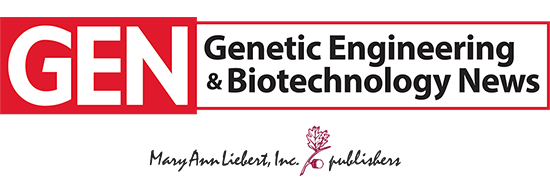By Alex Philippidis
Thermo Fisher Scientific has agreed to acquire Olink Holding for approximately $3.1 billion, the companies said today, in a deal intended to expand the buyer’s presence in proteomics.
Headquartered in Uppsala, Sweden, with offices in Boston, Shanghai, Singapore, and Tokyo, Olink was founded as Olink Proteomics in 2004. The company spun out of the Uppsala University lab of Ulf Landegren, MD, PhD, a professor of molecular medicine whose research focuses on developing and applying advanced molecular tools for precision medicine at levels of nucleic acids and proteins.
Olink offers a platform of proteomics-focused products and services—the best-known of which is its proximity extension assay (PEA) technology, designed to enable high-throughput, multiplex immunoassays of proteins using minimal volumes of serum, plasma, or almost any other type of biological sample.
Based on Landegren’s earlier proximity ligation assay (PLA), PEA has evolved since its first publication in 2011, and its first protein panel two years later, to provide protein analysis for qPCR and next-generation sequencing readout systems. PEA has a library of more than 5,300 validated protein biomarker targets, and citations in more than 1,400 scientific publications.
“The acquisition of Olink underscores the profound impact that proteomics is having as our customers continue to advance life science research and precision medicine,” Thermo Fisher chairman, president, and CEO Marc N. Casper said in a statement. “Olink’s proven and transformative innovation is highly complementary to our leading mass spectrometry and life sciences platforms.”
Olink investors embraced the Thermo Fisher acquisition with a buying surge that sent Olink share prices soaring 66.5% Tuesday, to $24.94 as of 1:52 p.m. ET. Thermo Fisher shares stayed all but flat, dipping 0.61% to $485.56 after peaking at $489.88 at 12:26 p.m. ET, an 0.8% gain.
Reflecting that sense of caution on Thermo Fisher, one analyst—Tycho Peterson of J.P. Morgan—lowered his firm’s 12-month price target on the company’s shares by 6%, from $670 to $630. Peterson, however, maintained J.P. Morgan’s “Overweight” rating on the stock.
However, two other analysts were more positive about the deal.
Brandon Couillard, a senior analyst, equity research with Jefferies covering healthcare / dental, diagnostics and life science tools, observed in a research note that Olink brings to Thermo Fisher a leading player in proteomics, especially on the research side, with PEA differentiated fomr the proteomics platforms of competitors by delivering “high-throughput protein analysis that is highly complementary to TMO’s existing mass spec & life science reagents platforms.
“Over time, we expect it will be able to leverage TMO’s leading qPCR [quantitative polymerase chain reaction] franchise & NGS [next=-generation sequencing] installed base to accelerate meaningful discovery work, removing a prior hurdle (dependent on third-party read-out instruments = don’t control own destiny),” Couillard wrote.
Puneet Souda, a senior research analyst at Leerink Partners covering Life Science Tools and Diagnostics, was more positive about the deal: “TMO, we believe, can scale OLK’s business up significantly and drive penetration into new markets, while strengthening its proteomics franchise of an already strong lineup of Orbitrap mass specs.”
Growing footprint
The Olink acquisition comes some four months after Thermo Fisher grew its footprint of proteomic products by unveiling its Thermo Scientific™ Orbitrap™ Astral™ mass spectrometer at the American Society for Mass Spectrometry, held June 4–8 in Houston.
Orbitrap Astral is designed to help researchers find proteins that had previously evaded detection by offering what the company said was up to two times deeper proteome coverage and up to four times more throughput than current mass spectrometers.
“We’ve already started to deliver the Astral to our customers, and we’re very pleased with the strong bookings performance to date,” Casper told analysts July 26 during the company’s quarterly earnings call, without furnishing details.
In announcing the acquisition, Thermo Fisher said Olink was on track to generate more than $200 million in revenue in 2024. Olink has guided investors to a projection of between $192 million to $200 million in revenues this year—between 37% and 43% annual growth.
Thermo Fisher projected that Olink will grow by a “mid-teens” percentage organically. The deal is expected to lower Thermo’s “adjusted” (excluding certain acquisition-related costs) earnings per share (EPS) by 17 cents in the first full year of ownership—but is also expected to add to EPS by 10 cents a share.
By the fifth year following completion of the acquisition, Thermo Fisher said, it expects to realize approximately $125 million of adjusted operating income through from revenue and cost “synergies.”
“The expected strong long-term business growth and synergy realization profile make the financial returns on the transaction very compelling,” Thermo Fisher added in its announcement.
However, Couillard of Jefferies cautioned that the synergies projection “seems high to us,” since it equates to ~80% of Olink’s estimated 2023 operating expenses of about $150 million, based on a workforce of about 300 commercial and research-and-development (R&D) full-time equivalent employees. “We think >50% of targeted synergies may come from revenues.”
Olink is Thermo Fisher’s second acquisition since July. The first was CorEvitas, a clinical data intelligence company acquired for $912.5 million cash, in a deal completed in August.
Growing net losses, revenue
Olink finished the first six months of this year with a net loss that grew 31% year-over-year to $22.231 million, up from a net loss of $16.992 million in January–June 2022. That includes a second-quarter net loss of $8.274 million, up about 72% from a $4.822 million net loss in Q2 of last year.
The company’s total revenue grew 13% in the first half of 2023, to $56.893 million from $50.191 million, with Q2 revenue rising 7% year-over-year, to $29.436 million from $27.514 million.
The acquisition deal is expected to be completed by mid-2024, subject to customary closing conditions that inclulde receipt of applicable regulatory approvals, and completion of the tender offer.
In 2019, Summa Equity acquired Olink for an undisclosed price, becoming Olink’s largest shareholder. Summa Equity and additional Olink shareholders and management—which combined hold more than 63% of Olink’s common shares—have entered into support agreements agreeing to tender their shares into a tender offer to be commenced by Thermo Fisher to acquire all outstanding Olink common shares and ADS shares.
The $3.1 billion purchase price includes net cash of approximately $143 million. At $26 a share cash, the purchase price represents $26 per American depositary share (ADS) cash—a 74% premium to Olink’s closing price Monday of $14.98.
Thermo Fisher said it expects to fund the acquisition using cash on hand and debt financing. Upon completion, Olink will become part of Thermo Fisher’s Life Sciences Solutions segment.
“Thermo Fisher’s deep life sciences expertise, global reach and proven operational excellence will enable significant opportunities for both customers and colleagues, while also providing immediate value to our shareholders,” Olink CEO Jon Heimer stated.
Alex Philippidis is Senior Business Editor of GEN.


